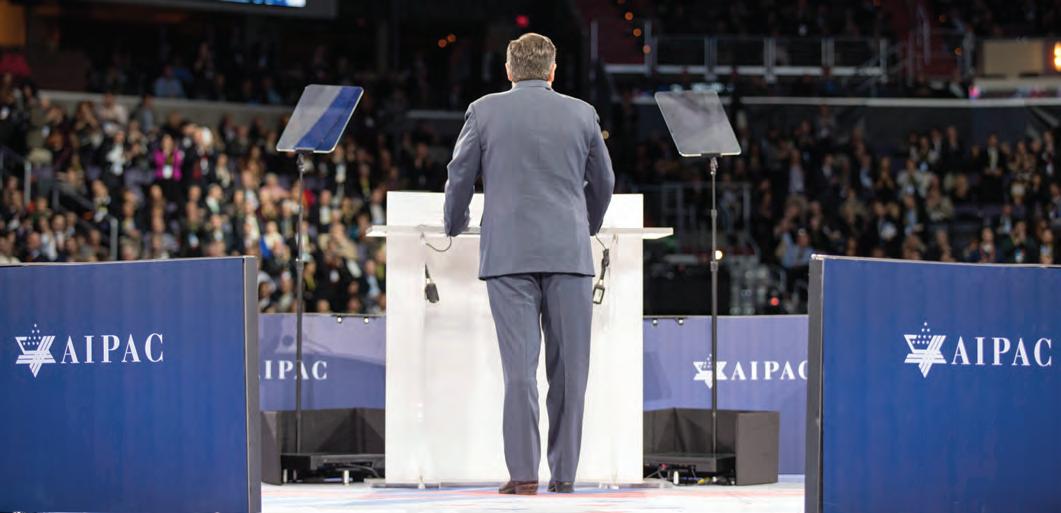
2 minute read
Moment(s
AIPAC LAUNCHES A PAC. WHY IT MATTERS.
BY NATHAN GUTTMAN
he American Israel Public
TAffairs Committee (AIPAC), America’s largest and most powerful pro-Israel lobby, announced in December its decision to create two PACs (political action committees) that will raise money for congressional candidates. Citing “hyper-partisanship, high congressional turnover, and the exponential growth in the cost of campaigns,” the lobby decided to launch both a regular PAC (which can donate up to $5,000 per candidate each election cycle) and a super PAC (unlimited in funding, but not allowed to coordinate directly with the candidate) to support pro-Israel political candidates.
Which raises a few questions:
Wasn’t AIPAC already a PAC? No, that’s just a common misconception due to the lobby’s name. AIPAC, up to now, did not explicitly endorse candidates or raise funds for them.
The other question is: Should you care? Since its founding in 1951, AIPAC has walked a fine line: It lobbied for pro-Israel causes in Congress and made sure its supporters were aware of each member’s voting record on issues the lobby cares about, but also took pains to distance itself from direct fundraising for candidates.
Now, the lobby, through its new PACs, will come out as a full-fledged political player, making no secret of its support for certain candidates and the financial benefits that these candidates’ campaigns can expect from the lobby’s supporters.
It is a sign, as AIPAC noted, of the changing times in DC politics and in the pro-Israel arena, where direct money is a necessary tool. Subtle winks and nods are no longer a match for checks carrying the group’s name.
The move will also make it easier for AIPAC to correct course and bolster its claim of bipartisanship, which has been called into question after some very public spats between the lobby and progressive Democrats.
Raising funds directly for both Democratic and Republican candidates will help the lobby highlight its contributions to centrist Democrats, demonstrating that its support is truly bipartisan—and that it excludes those on the margins of both parties who oppose pro-Israel legislation. In other words, the next time someone claims AIPAC leans Republican because of its attacks on members of “the Squad,” the lobby will be able to come back and respond: “We’re not against the Democrats! Look at all the money we just gave Democratic candidates.”
As expected, AIPAC’s move drew immediate fire from its critics, mainly from J Street, the left-leaning pro-Israel lobby.
J Street chose an interesting strategy: It did not criticize AIPAC for entering the field of direct political fundraising (which J Street has been doing for years), but rather presented a challenge: “J Street calls on AIPAC and all pro-Israel PACs not to endorse any lawmaker who voted against Congressional certification of 2020 election results on January 6 or otherwise supported the ‘Big Lie’ which










